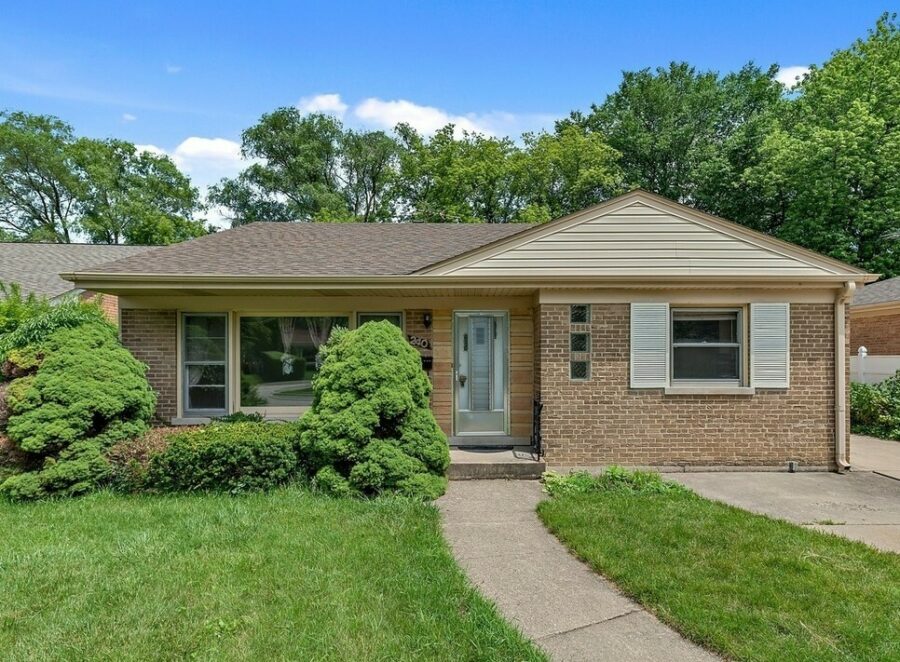Bringing Gratitude Home
Morgante Wilson Architects
Nov 1, 2021 - 5 min read

An Interview with Fred Wilson and Elissa Morgante
As we enter the season of giving, it seems appropriate to express how grateful we are for being able to make our dream of the Morgante Wilson Foundation a reality – and for all the amazing donors who’ve had a hand in the foundation’s accomplishments this past year. Read excerpts of a recent interview to learn more:
Let’s start with the basics: What’s the purpose of the Morgante Wilson Foundation?
Elissa:
In a nutshell, it’s to make the dream of homeownership come true. We have always believed everyone deserves a place they can call their own. But it’s really so much more than that. Our goal in creating the foundation is to act as a catalyst to fund sustainably affordable homes – first in Wilmette, and then onto more of Chicago’s North Shore.
Fred:
Exactly. You know, we’ve been practicing residential architecture for more than thirty years. And while it’s been a fantastic ride to create these amazing and incredible houses for our clients, our eyes have been opened to the tremendous needs that exist within the very same communities where we’ve been building dream homes. For some people, the dream is simply to have a home.
Elissa:
We’ve been fund-raising on behalf of Community Partners for Affordable Housing and the University of Chicago Cancer Research Foundation for fifteen years, which shows you how diverse our philanthropic work has been in the past. It’s been a little of this, and a little of that. Establishing our foundation was a way to combine these various philanthropic efforts to make a truly meaningful impact in one area, which is affordable housing.
It’s been almost a year – how are things going?
Fred:
FANTASTIC! You can put that all in caps because it really does deserve a huge shout-out.
Elissa:
We’re incredibly proud to say that in its first year the foundation reached the milestone of helping fund Wilmette’s first community land trust home. Over the next four years we plan to help fund thirteen more.

What is a community land trust?
Elissa:
A community land trust, or CLT, ensures a home will remain affordable even after it’s sold. When a qualifying buyer purchases the home, a nonprofit land trust retains ownership of the land it’s on. That land is basically leased to the buyer for a 99-year, renewable ground lease. The lease is written so the house can only be sold to another income-qualified buyer. And there’s a limitation on its price.
Fred:
The beauty of it is the CLT enables the homeowner to build equity in the house and profit from its sale – but the appreciation is capped. That’s what keeps it affordable in perpetuity. On Chicago’s North Shore, where you see so much wealth, that’s key. Qualifying families who’ve fallen on hard times – whether because of job loss, say, or illness – deserve to be strengthened by the stability established suburbs like Wilmette and Highland Park provide. They have excellent schools, active park districts, amazing libraries – all the things that make a community a desirable place to live and support families as their kids grow.
Elissa:
You know, life is uncertain. Even when you’re doing everything right, you can still get stuck in a rental cycle or fall on financial hard times. Then there are the people who have simply never been given the opportunity, or education, or tools, to lift themselves up. Being able to live in a safe and secure home is a tangible way to help families thrive. I’m on the Village of Wilmette Housing Commission so I’m able to work directly with CPAH to help guide the types of affordable homes they will develop for the village, that will have a real impact on the future of these families.
Where does the money come to fund all this?
Fred:
Ah, now we’re getting to the gratitude part. It takes a village – no pun intended – to get families into affordable housing. We do it through the Community Partnership for Affordable Housing, which I sit on the board of, with the support of the state, the county, villages like Wilmette and cities like Highland Park, and the Morgante Wilson Foundation.
Elissa:
Contributions also sometimes come from property developers who are building in the area. And they come from people who care enough to donate, in ways that are big and small. We do an annual appeal – I know, I’m doing a bit of a plug here, but it’s my job – that results in plenty of twenty-five- and fifty-dollar checks as well as some very sizeable contributions, and they all add up in a big way.
Fred:
They add up in ways you really can’t begin to count. Aside from the dollar amounts themselves, there’s the increased awareness, the increased participation among our pro bono vendors, the involvement of passionate people in the communities who take on the challenge of affordable housing – the list goes on. We are grateful to them all and could not do this without them.